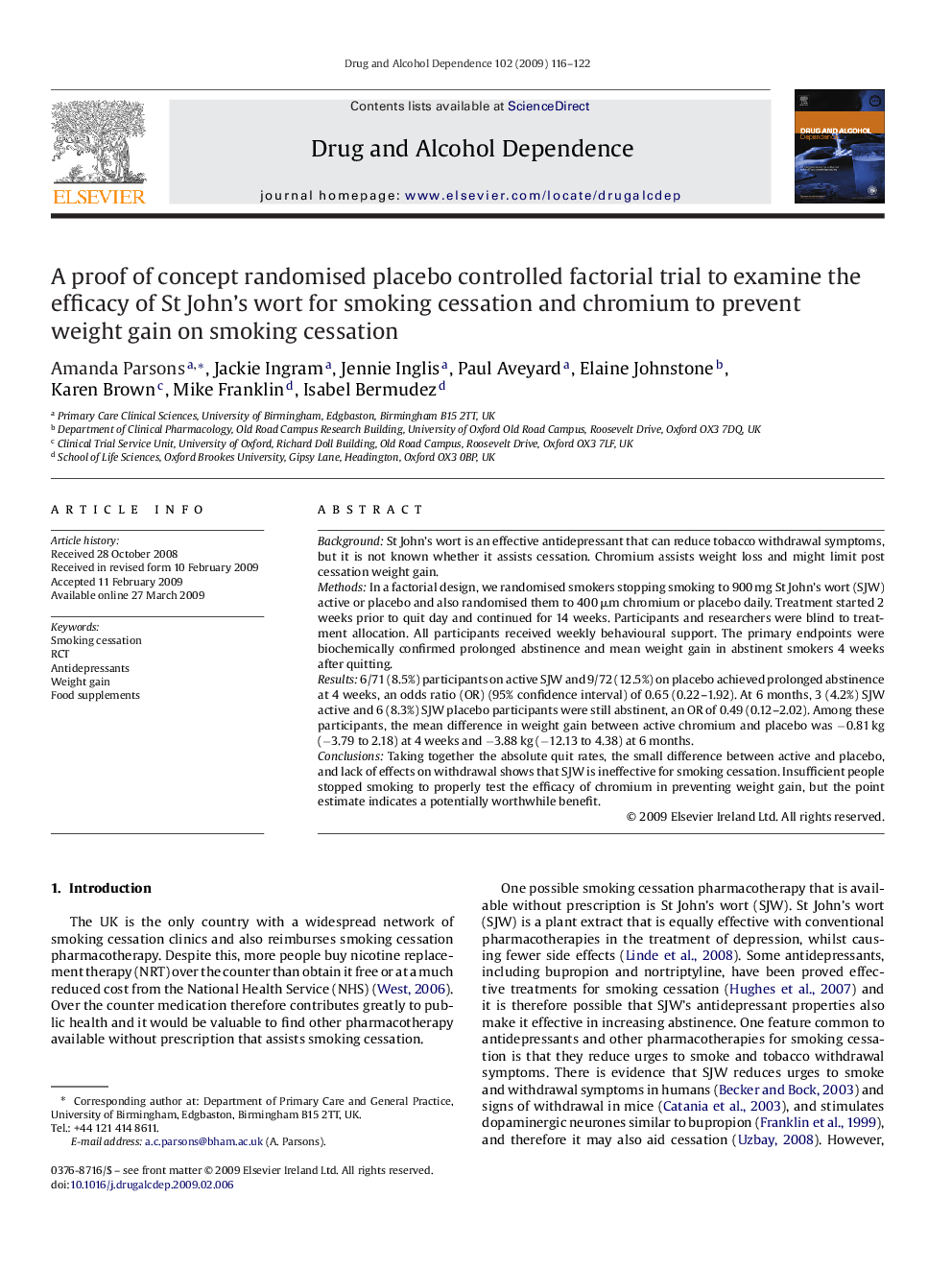| Article ID | Journal | Published Year | Pages | File Type |
|---|---|---|---|---|
| 1070828 | Drug and Alcohol Dependence | 2009 | 7 Pages |
BackgroundSt John's wort is an effective antidepressant that can reduce tobacco withdrawal symptoms, but it is not known whether it assists cessation. Chromium assists weight loss and might limit post cessation weight gain.MethodsIn a factorial design, we randomised smokers stopping smoking to 900 mg St John's wort (SJW) active or placebo and also randomised them to 400 μm chromium or placebo daily. Treatment started 2 weeks prior to quit day and continued for 14 weeks. Participants and researchers were blind to treatment allocation. All participants received weekly behavioural support. The primary endpoints were biochemically confirmed prolonged abstinence and mean weight gain in abstinent smokers 4 weeks after quitting.Results6/71 (8.5%) participants on active SJW and 9/72 (12.5%) on placebo achieved prolonged abstinence at 4 weeks, an odds ratio (OR) (95% confidence interval) of 0.65 (0.22–1.92). At 6 months, 3 (4.2%) SJW active and 6 (8.3%) SJW placebo participants were still abstinent, an OR of 0.49 (0.12–2.02). Among these participants, the mean difference in weight gain between active chromium and placebo was −0.81 kg (−3.79 to 2.18) at 4 weeks and −3.88 kg (−12.13 to 4.38) at 6 months.ConclusionsTaking together the absolute quit rates, the small difference between active and placebo, and lack of effects on withdrawal shows that SJW is ineffective for smoking cessation. Insufficient people stopped smoking to properly test the efficacy of chromium in preventing weight gain, but the point estimate indicates a potentially worthwhile benefit.
